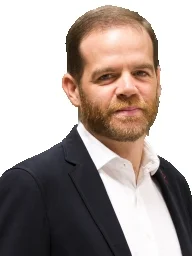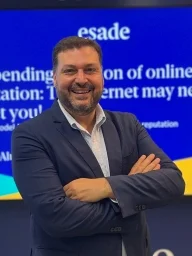Digital transformation: the great challenge of building efficient teams facing the legal profession
Lawyers for Projects, a ground-breaking firm offering flexible legal services in Spain based on flexible, first-rate talent and projects underpinned by technology, held a panel discussion in conjunction with Esade Law School and Wolters Kluwer Legal Software about the impact of technology on the efficiency and value of teams of lawyers.
In a landscape in which in-house legal teams are under increasing pressure to meet targets, access to technological tools and methods is essential, but the law profession has yet to overcome certain major challenges such as a lack of training and the ability to deal with the internal and external changes that legal departments must make as a result of their implementation.
Taking part in this discussion chaired by Laia Moncosí, CEO of Lawyers for Projects, were several directors from foremost companies in the Spanish economy: Eugenia Jover, head of the legal department at Mango; Justo Garzón, director of Legal Services Planning and Corporate Governance at Iberdrola; Jesús Gragera, Global Legal Operations Manager at Fluidra; and José Luis Rivas, director general of Legal Software Spain at Wolters Kluwer; and also the special participation of Eugenia Navarro, professor of Strategy, Legaltech and Law Marketing at Esade Law School.
In this respect, Laia Moncosí, CEO of Lawyers for Projects, highlighted that “the additional pressure arising from the pandemic caused more legal firms to look for or consider introducing technology”. She also mentioned that “the key to the successful introduction of technology is to pinpoint the specific issues they want to resolve beforehand and define how technology can help in-house lawyers focus on strategic matters that contribute greater value to the business”.
As Eugenia Jover, head of the legal department at Mango, said, “Using technology enables law firms to manage their time better and in-house lawyers can focus on working on matters of greater value added for their business.” Eugenia Jover also explained that “Mango is a company at the cutting edge of technology and our legal department – in keeping with the company’s strategy – is currently considering the possibility of technological change”.
Justo Garzón, director of legal services planning and corporate governance at Iberdrola, mentioned that “Each law firm moves at a different pace but one thing they have in common is that they must all innovate and many have already begun their transformation. Innovation is much more than an introduction to technology. Innovation is another way of interacting with the business and enabling in-house lawyers to move up from advisors to partners in the firm, and technology is essential for this. But technology is not an end in itself, it’s a means enabling a company’s legal department to get where it wants to be and get involved in its business strategy.” Garzón also underlined that “one of the factors that enabled Iberdrola to be innovative and invest in technology was the opportune implementation in the company of its business benefits. The introduction of AI cannot completely replace lawyers, they will always have to contribute their emotional intelligence”.
Jesús Gragera, Global Legal Operations Manager at Fluidra, pointed out, as regards the obstacles that law firms face when introducing technological solutions, that “All companies are different and require specific studies. However, I believe that the two most common obstacles are a lack of leadership and resistance to change”. “It’s usually more difficult for lawyers to step outside their comfort zone and change how they work than for other professionals, so the heads of technology implementation projects must make an extra effort in which empathy and persuasion are crucial”. According to the Fluidra legal department, “Another challenge is the ability to implement the different projects around the globe (EMEA, NA, APAC) due to cultural differences and the different degrees of technological maturity in existence”.
Likewise, as regards the selection and implementation of technology solutions, he added that, “we feel it’s essential to be supported at work by our in-house IT department and specialized technology consultants, and to pinpoint our specific needs and design a custom digital strategy in order to avoid rushed or spur-of-the-moment decisions,” concluded Gragera.
According to José Luis Rivas, CEO of Wolters Kluwer Legal Software Spain, “Law firms are increasingly interested in using technology. When more than four professionals are involved in negotiating and drawing up a contract, there are usually as many as 25 drafts before the final version. This simple fact highlights the advisability of adopting technological solutions that can make this function more efficient. Contract management and machine learning tools are beginning to be regarded as a necessity.” Rivas’s recommendation is for technological solutions to be gradually implemented and prioritized.”
Lastly, Eugenia Navarro, director of the In·On Legal Operations and Legaltech program at Esade Law School, said that, “Technology is an ally for lawyers, it doesn’t replace them". He also emphasized that “law firms are now being modernized and if innovation projects are to be successful, they must be aligned with the company’s strategy.”
This was the third session – the first to involve Wolters Kluwer Legal Software – organized by Lawyers for Projects together with Esade Law School in a series in which they seek to promote innovation and disruption in the legal profession whilst raising awareness about the digital tools available to this sector.




